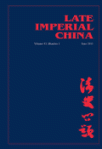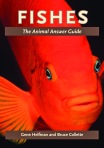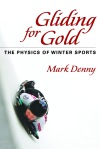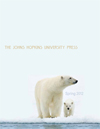The university press world isn’t all fun, games, and goofing off on Twitter, Facebook, and blogs (we’d make this last a link too, but that might be a bit too self- referential). We’ve been busy, very, very busy working to bring some of the most exciting and important scholarly work to you. Here’s just a small sampling of what we’ve been up to here in Baltimore.
Journals news
 Have you seen online-only journal Theory & Event‘s special supplement from December 2011 on Occupy Wall Street and other similar movements? The supplement, which features text of some speeches given at protest sites, is still available free for a limited time. There’s also a podcast with the editors explaining how the supplement came together quickly to shine a current light on the events.
Have you seen online-only journal Theory & Event‘s special supplement from December 2011 on Occupy Wall Street and other similar movements? The supplement, which features text of some speeches given at protest sites, is still available free for a limited time. There’s also a podcast with the editors explaining how the supplement came together quickly to shine a current light on the events. We’re happy to announce a new addition to our podcast series from the editors of Late Imperial China, who discuss their December 2011 issue, upcoming content for the journal and the Society for Qing Studies, the group affiliated with the journal. The journal and society work together to provide comprehensive resources for scholars of China. Download the MP3 to learn more.
We’re happy to announce a new addition to our podcast series from the editors of Late Imperial China, who discuss their December 2011 issue, upcoming content for the journal and the Society for Qing Studies, the group affiliated with the journal. The journal and society work together to provide comprehensive resources for scholars of China. Download the MP3 to learn more. Where will you find discussion of Proust, Kafka and the NBC comedy series “30 Rock” in a single volume? The most recent issue of Philosophy of Literature, that’s where! I bet you never thought you could find an examination of Tina Fey’s humor connected to Oscar Wilde, but the article by Siena College’s Josh Gillon delivers. As we’ve been told, this is “metafunny.”
Where will you find discussion of Proust, Kafka and the NBC comedy series “30 Rock” in a single volume? The most recent issue of Philosophy of Literature, that’s where! I bet you never thought you could find an examination of Tina Fey’s humor connected to Oscar Wilde, but the article by Siena College’s Josh Gillon delivers. As we’ve been told, this is “metafunny.”
Recently released books
 Hergé, Son of Tintin: Written by Benoît Peeters and translated by Tina A. Kover, this insightful biography delves deep into the psyche of Tintin creator Georges Remi and his public persona Hergé. The perfect book for all you Tintintologists and for any other Tintin fans who would like to know more about the comic’s creator. (Go here for some commentary on how the book relates to the marketing frenzy surrounding The Adventures of Tintin movie.)
Hergé, Son of Tintin: Written by Benoît Peeters and translated by Tina A. Kover, this insightful biography delves deep into the psyche of Tintin creator Georges Remi and his public persona Hergé. The perfect book for all you Tintintologists and for any other Tintin fans who would like to know more about the comic’s creator. (Go here for some commentary on how the book relates to the marketing frenzy surrounding The Adventures of Tintin movie.) The Vegetarian Imperative: This scientifically grounded argument in favor of a vegetarian lifestyle explains why we need to make better choices about what we eat: for better health, to eliminate world hunger, and, ultimately, to save the planet. Each of these arguments alone provides reason enough to stop consuming so much animal-based food; in Anand M. Saxena’s hands they make a nearly unassailable case for vegetarianism.
The Vegetarian Imperative: This scientifically grounded argument in favor of a vegetarian lifestyle explains why we need to make better choices about what we eat: for better health, to eliminate world hunger, and, ultimately, to save the planet. Each of these arguments alone provides reason enough to stop consuming so much animal-based food; in Anand M. Saxena’s hands they make a nearly unassailable case for vegetarianism. Field Guide to the Street Trees of New York City: Leslie Day’s latest project (she is also the author of Field Guide to the Natural World of New York City) acquaints New Yorkers and visitors alike with 50 species of trees commonly found on the streets of New York City. Beautiful, original drawings of leaves and stunning photographs of bark, fruit, flower, and twig accompany informative descriptions of each species.
Field Guide to the Street Trees of New York City: Leslie Day’s latest project (she is also the author of Field Guide to the Natural World of New York City) acquaints New Yorkers and visitors alike with 50 species of trees commonly found on the streets of New York City. Beautiful, original drawings of leaves and stunning photographs of bark, fruit, flower, and twig accompany informative descriptions of each species. Inventing Iron Man: The Possibility of a Human Machine: In this book, E. Paul Zehr, the master of the scientific deconstruction of superheroes, probes the science behind Iron Man to find out how we could use modern-day technology to create a suit of armor similar to the one Tony Stark made—and if a mortal could withstand the experience, because superherodom is not just about technology.
Inventing Iron Man: The Possibility of a Human Machine: In this book, E. Paul Zehr, the master of the scientific deconstruction of superheroes, probes the science behind Iron Man to find out how we could use modern-day technology to create a suit of armor similar to the one Tony Stark made—and if a mortal could withstand the experience, because superherodom is not just about technology. Fishes: The Animal Answer Guide: Fishes range in size from tiny gobies to the massive Ocean Sunfish, which weighs thousands of pounds. They live in just about every body of water on the planet. Ichthyologists Gene Helfman and Bruce Collette provide accurate, entertaining, and sometimes surprising answers to over 100 questions about these water dwellers, such as “How many kinds of fishes are there?” “Can fishes breathe air?” “How smart are fishes?” and “Do fishes feel pain?”
Fishes: The Animal Answer Guide: Fishes range in size from tiny gobies to the massive Ocean Sunfish, which weighs thousands of pounds. They live in just about every body of water on the planet. Ichthyologists Gene Helfman and Bruce Collette provide accurate, entertaining, and sometimes surprising answers to over 100 questions about these water dwellers, such as “How many kinds of fishes are there?” “Can fishes breathe air?” “How smart are fishes?” and “Do fishes feel pain?” Gliding for Gold: The Physics of Winter Sports: Prolific physics popularizer Mark Denny’s take on winter athletics lays out the physical principles that govern glaciated game play. A physics-driven exploration of sports played on ice and snow that is truly fun and informative, this book is the perfect primer for understanding the science behind cold weather athletics.
Gliding for Gold: The Physics of Winter Sports: Prolific physics popularizer Mark Denny’s take on winter athletics lays out the physical principles that govern glaciated game play. A physics-driven exploration of sports played on ice and snow that is truly fun and informative, this book is the perfect primer for understanding the science behind cold weather athletics.
And Much, Much More
 Our spring 2012 catalog is available for your perusing pleasure.
Our spring 2012 catalog is available for your perusing pleasure.- Discover JHUP books for your e-reader! Hopkins e-books are available from Amazon, Barnes & Noble, Sony, and Google.
- Oh, and there’s this little initiative from our Project MUSE colleagues. Something or other about putting scholarly monographs online, but MUSE director Dean Smith is much better at talking about this than are we.


